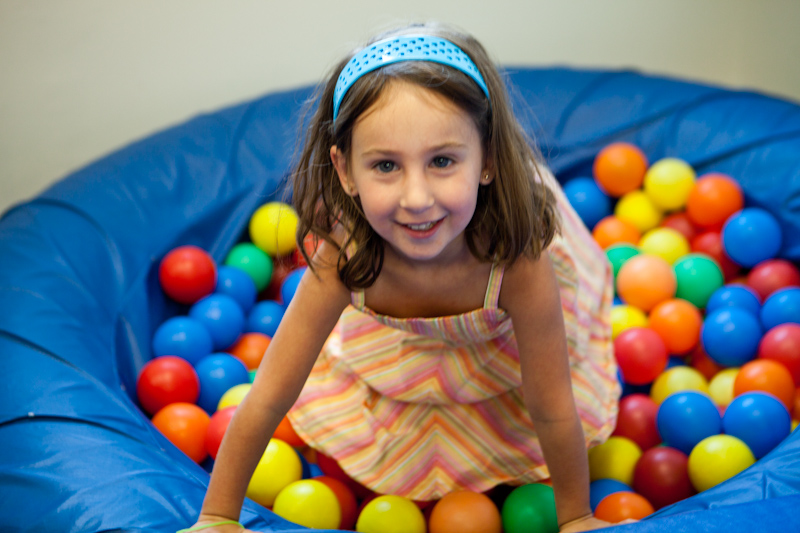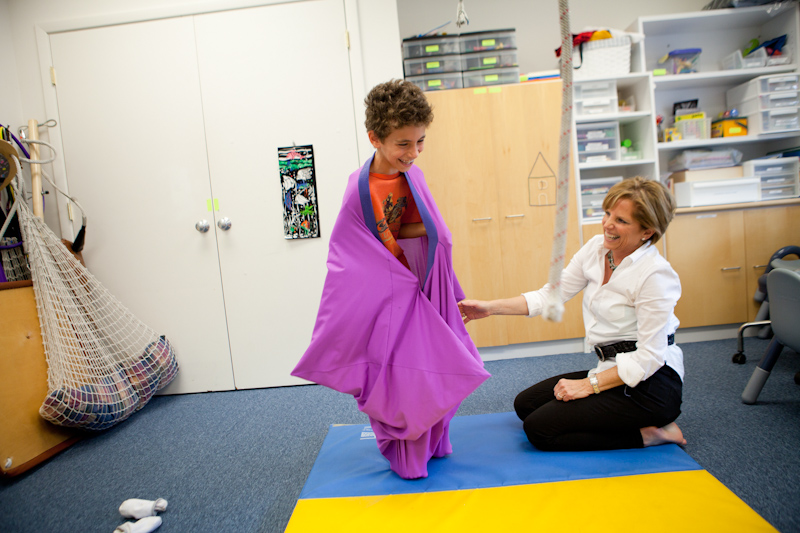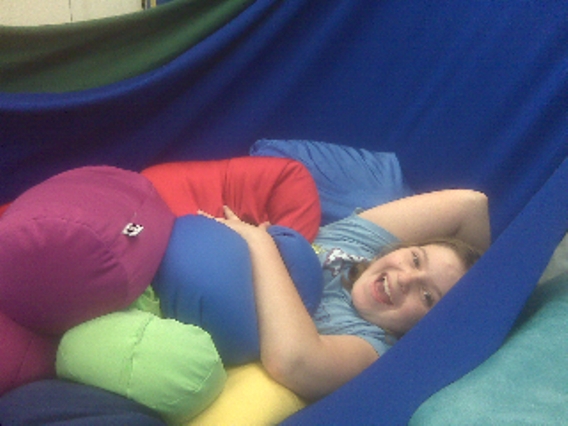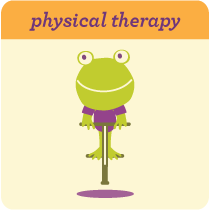 Sensory processingGross motor / Motor PlanningFine motor / HandwritingVisual spatial / Perceptual motorOral sensory / Oral motorSound therapiesInteractive metronomeCranioSacral TherapyConsultationsPrimitive Reflex Integration
Sensory processingGross motor / Motor PlanningFine motor / HandwritingVisual spatial / Perceptual motorOral sensory / Oral motorSound therapiesInteractive metronomeCranioSacral TherapyConsultationsPrimitive Reflex Integration
 As occupational therapists, we often see children whose struggles in their daily lives are described as “bad behaviors” or “oppositional”. Children who are finicky eaters, resistant to getting dressed, have trouble sitting still, are grouchy at birthday parties and family gatherings, break things easily, spill things, bump into others, are loud, messy, or too close, and other signs of irritability may in fact have Sensory Processing difficulties.
As occupational therapists, we often see children whose struggles in their daily lives are described as “bad behaviors” or “oppositional”. Children who are finicky eaters, resistant to getting dressed, have trouble sitting still, are grouchy at birthday parties and family gatherings, break things easily, spill things, bump into others, are loud, messy, or too close, and other signs of irritability may in fact have Sensory Processing difficulties.
During the past two decades, there has been increased understanding that some children (and adults) may be more bothered by, or under reactive to, sensation. Children learn about their bodies and the world around them through the five sensory systems of touch, sight, hearing, smell, and taste, as well as two hidden senses (proprioception and the vestibular senses) that affect how we move, increase our awareness of our bodies and help us have controlled and coordinated movements. Occupational therapists are specifically trained to explore underlying sensory processing difficulties and their impact on your child’s life.
 These are some of the behaviors we see that suggest children may need more or different kinds of sensory stimulation (“sensory diet”) to experience their surroundings and their own bodies in a more comfortable way:
These are some of the behaviors we see that suggest children may need more or different kinds of sensory stimulation (“sensory diet”) to experience their surroundings and their own bodies in a more comfortable way:
 Disengagement
DisengagementAt Pediatric Potentials, our pediatric occupational therapists can evaluate your child from this sensory standpoint. We needs to address these “red flag issues” if they are getting in the way of your child’s enjoyment or progress in typical settings. We provide home and school accommodations to address sensory processing difficulties.

SN Pediatric Potentials, Inc.  154 S. Livingston Ave, Suite 204
154 S. Livingston Ave, Suite 204  Livingston, NJ 07039
Livingston, NJ 07039
 973.535.5010
973.535.5010
 director@pediatricpotentialsnj.com
director@pediatricpotentialsnj.com
Site designed by Jillian Kornsweig



